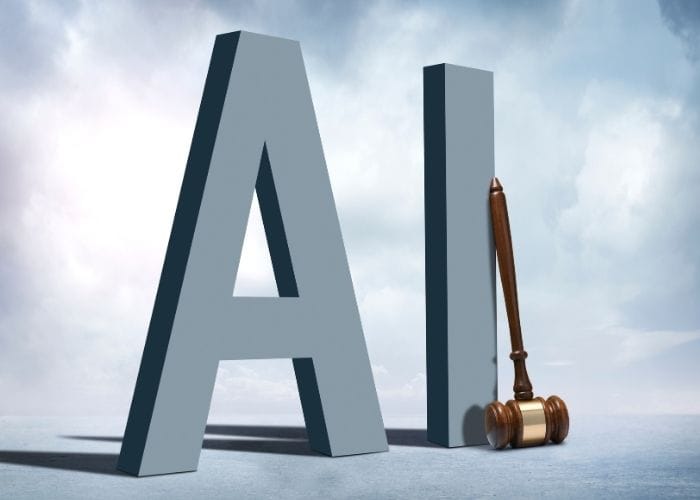- What is Artificial Intelligence?
Artificial intelligence (AI) refers to computer systems and algorithms capable of mimicking human-like cognitive abilities. AI is a broad scientific field that includes sub-disciplines such as machine learning, deep learning, natural language processing, and computer vision. Today, AI is widely used in big data analysis, automation, decision support systems, and robotics.
The impact of AI in various sectors is increasing rapidly. AI-powered systems are accelerating processes and enhancing efficiency, particularly in fields such as finance, healthcare, transportation, and law. For instance, AI-powered document review software can analyze large volumes of documents in a short time and extract crucial information. Additionally, some AI systems can analyze big data to identify trends and contribute to decision support systems.
However, this rapid advancement of AI also brings about legal and ethical concerns. Issues such as transparency, accountability, and legal liability in AI-driven decisions necessitate the establishment of regulatory frameworks in this area.
- Legal Approach to Artificial Intelligence
One of the fundamental issues concerning the use of AI in legal systems is whether AI-driven decisions can be audited. The “black box” problem of AI, which refers to the lack of transparency in decision-making mechanisms, creates significant uncertainties in legal processes. Therefore, the European Union and other international organizations are working to introduce specific legal regulations for AI systems.
2.1. Regulations in the European Union (EU AI Act)
The European Union’s Artificial Intelligence Act (EU AI Act) categorizes AI systems into four main risk levels:
- Unacceptable risk systems: Banned due to their potential to cause serious harm to society (e.g., social scoring systems).
- High-risk systems: Used in critical areas such as healthcare, transportation, and law, subject to strict regulations. These systems must comply with the following requirements:
- Establish a risk management framework: Regular assessments to identify and mitigate potential risks.
- Ensure transparency and traceability: Clear information on how the AI model operates and the data it relies on.
- Maintain human oversight: Prevent fully autonomous decision-making and allow human intervention.
- Conduct security testing and data management: Ensure reliability and compliance with ethical and legal standards.
- Limited-risk systems: Require user disclosure but are not subject to stringent regulations.
- Low-risk systems: Generally suitable for use with minimal regulatory restrictions.
Under the EU AI Act, strict security and ethical rules have been imposed, particularly for high-risk AI systems. These regulations are crucial for understanding the legal liabilities associated with AI-powered services.
2.2. AI Law in Turkey
Turkey does not yet have a comprehensive legal framework dedicated to AI. However, existing regulations are being expanded to cover important aspects of AI-related issues. Notably, the Personal Data Protection Law (KVKK) includes key provisions on how AI systems should process personal data.
Additionally, Turkey’s 2021-2025 National Artificial Intelligence Strategy provides a roadmap for developing regulatory approaches to AI. This strategy document focuses on defining ethical guidelines, establishing data management policies, and adapting legal systems to AI advancements.
Furthermore, the Turkish Grand National Assembly (TBMM) has established a commission to address AI-related issues. This commission is monitoring developments in the field and working on regulatory frameworks. In the near future, Turkey is expected to introduce more comprehensive legal regulations on AI.
- Compliance and Adaptation to Legal Regulations
Compliance with the EU AI Act and AI-related regulations in Turkey is crucial for both technology companies and individuals. Companies developing AI-powered systems and institutions using these systems must take specific steps to ensure compliance.
The EU AI Act imposes various criminal penalties for non-compliance with AI regulations. These penalties are even stricter than those outlined in the General Data Protection Regulation (GDPR):
- Prohibited AI applications: Organizations violating these rules may face fines of up to €35 million or 7% of their global annual turnover, whichever is higher.
- Other violations: Violations of obligations under Articles 16 (provider responsibilities) and 22 (authorized representative responsibilities) may result in fines of up to €15 million or 3% of global annual turnover, whichever is higher.
- Providing misleading information: Submitting false, incomplete, or misleading information to authorities may lead to fines of up to €7.5 million or 1% of global annual turnover, whichever is higher.
3.1 Steps for Ensuring Compliance
- Classify AI systems by risk level: Identifying which risk category an AI system falls into is essential for understanding regulatory requirements.
- Establish data protection and ethical auditing mechanisms: Regularly monitor how AI systems process personal data and ensure compliance with ethical principles.
- Determine legal responsibilities of AI systems and integrate them into processes: Identify potential risks and liabilities associated with AI usage.
- Conduct regular audits for regulatory compliance: Stay updated on regulatory changes in the EU and Turkey and adapt swiftly.
- Organize AI awareness training: Implement training programs to educate institutions and individuals on AI systems and legal frameworks.
- Create an AI inventory: Develop a comprehensive inventory of AI systems in use to facilitate risk management and compliance efforts.
- Conclusion and Evaluation
As AI continues to transform various industries, adapting to this change is of utmost importance. Ensuring compliance with regulations and adhering to ethical principles will enhance the reliability of AI systems.
Understanding how legal processes will be shaped within the framework of EU and Turkish regulations has become a critical necessity. In the coming years, AI-related legal regulations are expected to evolve further. AI will not only transform existing industries but also create new professions, business models, and societal dynamics.
Therefore, raising awareness and staying up to date with the latest developments in AI law will provide a significant advantage for individuals and institutions. AI’s integration into our daily lives is inevitable. Ensuring that legal frameworks keep pace with this rapid transformation will enable society to benefit from AI in the most efficient and secure manner.


